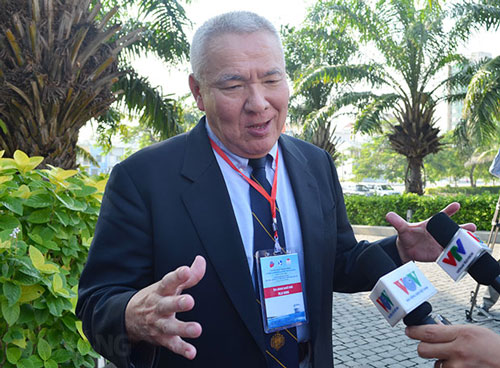Greater efforts needed by relevant parties to settle sea-related issues
“The Bien Dong” (East Sea) disputes can only be settled on the basis of full awareness and deep understanding of the current challenges and opportunities, and proactive and joint efforts among all relevant parties while encountering those challenges”. This statement was made at the 6th International Conference on the Bien Dong which took place in Da Nang from 17 to 18 November. The conference took “The Bien Dong: Cooperation for Regional Security and Development” as its theme.
The majority of the scholars participating in the event raised concerns about China’s attempts to strengthen its naval forces through more purchases of submarines and amphibious assault ships, as well as the implementation of its aircraft carrier programme. These moves could increase the risk of an arms race in the region. Moreover, China’s illegal reinforcement activities on some rock reefs in Viet Nam’s Truong Sa archipelago may change the status quo as well as pose a threat of disputes in the Bien Dong.
 |
| A specialist from Japan presenting his views on sea-related issues |
According to many experts, the recent escalating tensions on the Bien Dong could adversely affect the preservation and development of maritime resources whilst threatening security along international routes through the Bien Dong.
A foreign specialist also pointed to a paradox that whilst the regional community has made great efforts to avoid disputes at sea, some countries are creating low-level tensions over which they thought they could take control, although no direct confrontation has yet occurred. This move is viewed as a very dangerous sign because a code of conduct or a legally-binding accord to control clashes and disputes in the Bien Dong has yet to be issued.
Also at the conference, many participants spoke highly of the efforts to set up a hotline for parties involved in the Bien Dong-related issues. In addition, they stressed the significant need to build specific regulations on the operation of the communication tool and the handling of information exchanged.